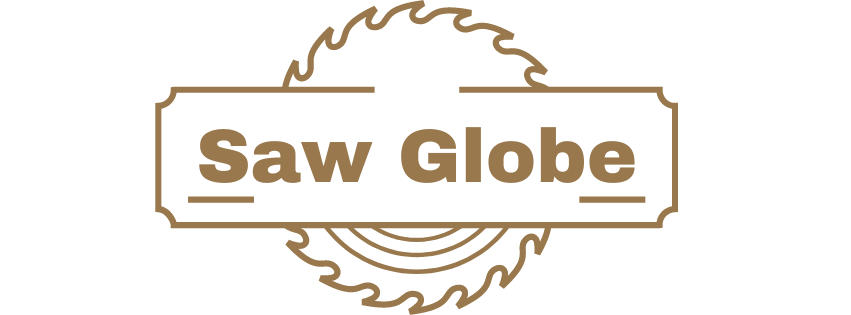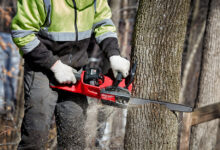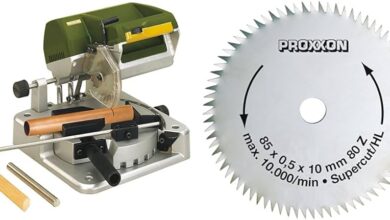Contents
- 1 A Comprehensive Exploration of Custom Hole Saws for Precise and Efficient Cutting
- 2 Introduction
- 3 Strengths of Custom Hole Saws
- 4 Weaknesses of Custom Hole Saws
- 5 Applications of Custom Hole Saws
- 6 Features of Custom Hole Saws
- 7 Table: Key Specifications of Custom Hole Saws
- 8 FAQs on Custom Hole Saws
- 8.1 1. What is the difference between a standard and a custom hole saw?
- 8.2 2. How do I order a custom hole saw?
- 8.3 3. What is the typical lead time for a custom hole saw?
- 8.4 4. Can custom hole saws be resharpened?
- 8.5 5. What safety precautions should I take when using custom hole saws?
- 8.6 6. How do I choose the right custom hole saw for my application?
- 8.7 7. What are the benefits of using a custom hole saw over a standard hole saw?
- 9 Conclusion
A Comprehensive Exploration of Custom Hole Saws for Precise and Efficient Cutting
Custom hole saws are a game-changer for tradespeople, DIY enthusiasts, and anyone looking to make precise and efficient cuts in various materials. Unlike standard hole saws, these specialized tools are custom-made to meet specific requirements, enabling users to tackle complex drilling tasks with ease. This comprehensive guide delves into the intricate world of custom hole saws, exploring their strengths, weaknesses, applications, and everything in between.
Introduction
Custom hole saws have revolutionized the drilling industry, providing a cost-effective and versatile solution for a wide range of cutting needs. These specialized saws are designed to handle challenging materials, intricate shapes, and precise dimensions, making them invaluable tools for professionals and hobbyists alike. Whether you’re working on metal, wood, plastic, or composite materials, a custom hole saw can help you achieve the desired results with accuracy and efficiency.
The growing popularity of custom hole saws stems from their ability to address specific application requirements. From creating large-diameter holes to drilling angled cuts, these saws offer unmatched flexibility and precision. They are particularly beneficial in situations where standard hole saws fall short, ensuring that drilling jobs are completed to the highest standards.
Custom hole saws are constructed using high-quality materials, including durable tool steel, tungsten carbide-tipped teeth, and bi-metal construction. This exceptional craftsmanship ensures that the saws can withstand demanding cutting conditions, delivering long-lasting performance and reliable results.
Strengths of Custom Hole Saws
The strengths of custom hole saws are undeniable. These specialized tools provide a range of advantages that make them an indispensable asset for various drilling applications.
1. Precise Cuts:
Custom hole saws are renowned for their ability to produce precise cuts with minimal burring. The use of precision-ground teeth ensures that the holes are clean and accurate, eliminating the need for excessive reaming or finishing.
2. Versatility:
One of the most significant strengths of custom hole saws is their versatility. They can be used on a wide range of materials, including metal, wood, plastic, and composite materials. This makes them an excellent choice for projects that involve various substrates.
3. Customization:
Customization is the cornerstone of custom hole saws. They can be tailored to specific dimensions, shapes, and cutting depths, allowing users to tackle unique drilling requirements with ease.
Weaknesses of Custom Hole Saws
While custom hole saws offer exceptional strengths, it’s essential to acknowledge their potential weaknesses as well.
1. Cost:
Custom hole saws are typically more expensive than standard hole saws due to their specialized design and manufacturing process. However, their long-term durability and versatility often justify the initial investment.
2. Lead Time:
Custom hole saws are not readily available off-the-shelf. They require fabrication based on specific requirements, which can lead to longer lead times compared to standard hole saws.
3. Availability:
Due to their specialized nature, custom hole saws may not be readily available from all suppliers. It’s crucial to research and identify reliable manufacturers who can provide custom hole saws as per specific requirements.
Applications of Custom Hole Saws
Custom hole saws find application in a diverse range of industries and sectors, including:
1. Metalworking:
Custom hole saws are extensively used in metalworking for drilling precise holes in various metals, including steel, aluminum, and stainless steel.
2. Carpentry:
Woodworking professionals rely on custom hole saws for drilling clean, accurate holes in wood, plywood, and composite materials.
3. Electrical Work:
Custom hole saws enable electricians to drill holes for electrical boxes, conduit, and other electrical components with precision.
4. Plumbing:
Plumbers use custom hole saws to drill holes for pipes, fixtures, and other plumbing components, ensuring a secure and leak-free installation.
5. HVAC:
In the HVAC industry, custom hole saws are commonly used for drilling holes for ductwork, vents, and other HVAC components.
6. Aerospace:
Custom hole saws play a critical role in the aerospace industry, where precision and accuracy are paramount for drilling holes in aircraft components.
7. Automotive:
Automotive professionals utilize custom hole saws for drilling holes in car panels, exhaust systems, and other automotive components.
Features of Custom Hole Saws
Custom hole saws offer a range of features that contribute to their exceptional performance and versatility.
1. Carbide-Tipped Teeth:
Many custom hole saws incorporate carbide-tipped teeth for enhanced durability and cutting efficiency. Carbide is an extremely hard material that resists wear and tear, ensuring longer tool life and cleaner cuts.
2. Bi-Metal Construction:
Bi-metal construction is a common feature of custom hole saws. It involves bonding high-speed steel teeth to a durable alloy steel back. This combination provides both strength and flexibility.
3. Arbor Compatibility:
Custom hole saws are typically designed to be compatible with standard arbors or mandrels, making them easy to use with most drilling machines.
4. Custom Shapes and Sizes:
One of the defining characteristics of custom hole saws is their ability to be fabricated in various shapes and sizes. This allows for precise drilling of non-standard holes, such as square, rectangular, or oval.
5. Depth Control:
Some custom hole saws feature depth control mechanisms, enabling users to drill to precise depths, ensuring consistent results and preventing over-drilling.
Table: Key Specifications of Custom Hole Saws
| Specification | Description |
|---|---|
| Material | Tool steel, tungsten carbide-tipped teeth, bi-metal construction |
| Cutting Depth | Varies depending on custom specifications |
| Teeth per Inch (TPI) | Customizable to suit specific material and application |
| Arbor Compatibility | Typically compatible with standard arbors or mandrels |
| Hole Shape | Standard (round) or custom shapes (square, rectangular, oval) |
FAQs on Custom Hole Saws
Here are answers to some frequently asked questions about custom hole saws:
1. What is the difference between a standard and a custom hole saw?
Standard hole saws are pre-manufactured to a specific size and shape, while custom hole saws are fabricated to meet unique requirements, including specific dimensions and shapes.
2. How do I order a custom hole saw?
To order a custom hole saw, you need to provide detailed specifications, including the desired diameter, depth, shape, material, and arbor compatibility. Contact a reputable manufacturer for pricing and lead time.
3. What is the typical lead time for a custom hole saw?
Lead time varies depending on the complexity of the custom requirements. It’s advisable to inquire with the manufacturer for an accurate estimate.
4. Can custom hole saws be resharpened?
Yes, custom hole saws can be resharpened multiple times to extend their lifespan. However, it’s recommended to use a professional sharpening service to maintain optimal performance.
5. What safety precautions should I take when using custom hole saws?
Always wear appropriate safety gear, including eye protection, gloves, and hearing protection. Ensure the workpiece is securely clamped, and use a sharp hole saw to minimize vibration and risk of injury.
6. How do I choose the right custom hole saw for my application?
Consider the material you’re drilling, the desired hole size and shape, and the depth of cut required. Consult with the manufacturer or an experienced professional to determine the most suitable custom hole saw for your specific needs.
7. What are the benefits of using a custom hole saw over a standard hole saw?
Custom hole saws offer greater precision, versatility, and customization, enabling you to tackle complex drilling tasks with accuracy. They are ideal for non-standard applications or materials that require precise drilling.
Conclusion
Custom hole saws are an invaluable asset for professionals and DIY enthusiasts who demand precision, versatility, and durability in their drilling tasks. By understanding their strengths, weaknesses, applications, and features, you can make informed decisions when selecting the right custom hole saw for your specific requirements. Remember, custom hole saws are a long-term investment that can significantly enhance your productivity and ensure optimal results.









